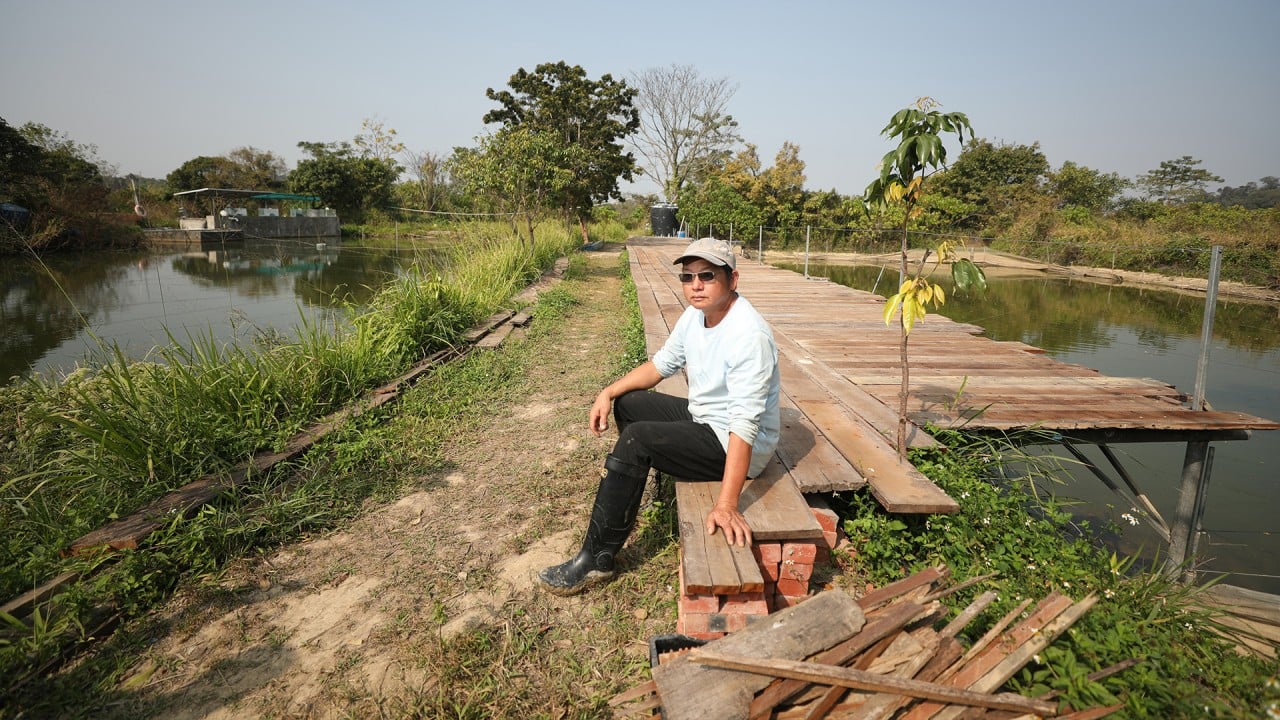
Should private developers take over parts of Hong Kong’s ambitious Northern Metropolis mega project?
- Development minister Bernadette Linn says authorities considering outsourcing part of project to private developers as way to reduce financial burden on government
- But land policy experts and economists say that while financing model could improve short-term cash flow, public interest may be undermined, with flats possibly pricier
Development minister Bernadette Linn Hon-ho on Monday said authorities were considering outsourcing part of the project to private companies as a way to reduce the financial burden on the government.
Under the model, which has been adopted by authorities in mainland China, private companies are entrusted with carrying out various tasks of development, including land levelling and building infrastructure, following a bidding process. The developers then enjoy more favourable land premiums.
“This would be helpful to the cash flow of the government,” Linn said. “Private developers are also more flexible in terms of bidding and hiring when it comes to developing a large plot of land.”

The project is expected to provide half a million flats for 2.5 million residents and establish a new commercial area along the border dedicated to helping Hong Kong become an innovation and technology hub. But the government has yet to reveal the cost.
Linn said the government hoped to pilot the new financing model in parts of the Northern Metropolis, including Lau Fau Shan, the San Tin Technopole and the New Territories North New Town, which covers Ta Kwu Ling and Ping Che.
If the pilot project is successful, the government may apply the model to some parts of the Lantau artificial islands development as well.
Such an approach to financing is not new in Hong Kong – several major residential projects in the city were built under public-private partnerships, but on a smaller scale.
But Brian Wong Shiu-hung, a member of the Liber Research Community, an NGO focused on land and development policies, said the model would weaken the government’s control over land planning and usage, ultimately undermining public interest.
“Would the Northern Metropolis remain an affordable community for the general public?” he said. “Under such a model, it’s almost impossible for the government to provide affordable housing, which is one of the major targets of the mega project.”
Wong also argued it would be difficult for the government to stipulate the land use and maintain the expected 7:3 ratio for public and private housing for the project if private investment was involved in the initial stage.
Although it was not clear whether private developers would also be tasked with clearance and compensation as were mainland companies in Shenzhen’s Nansha district, Wong urged authorities to clarify how the rights of existing landowners and tenants would be protected, citing concerns about forced evictions.
Wong said he believed a more effective way to improve the cash flow would be to curtail the scale of the project to a manageable level.
“Is the development scale really in line with the actual needs of Hongkongers?” he said.
Lau Chun-kong, chairman of the Hong Kong Institute of Surveyors’ land policy panel, said implementing the mainland model would mean slashing the price of land because developers would need to bear a much larger cost. Developers are already reluctant to buy large tracts from the government, as evidenced by six failed land tenders this financial year.
Lau added that the government would still need to bear the cost of basic infrastructure for the Northern Metropolis including the extension of the rail line, and water and electricity supplies, which could not be outsourced to developers.
Economist Simon Lee Siu-po, an honorary fellow at the Asia-Pacific Institute of Business, said he doubted the market would be enthusiastic over the chance to become involved in the project at the outset, citing the sluggish economy and high interest rates.
“It’s hard for the government to calibrate a land premium level attractive enough for the developers, while not hurting the government’s finances in the long run,” he said.
But Lee agreed the model could offer higher flexibility for developers and benefit overall land planning if the economy was strong.
Professor Terence Chong Tai-leung, executive director of the Chinese University of Hong Kong’s Lau Chor Tak Institute of Global Economics and Finance, said the model could help the government’s cash flow in the short-run.
“The developers are more efficient than the government, maybe of a higher efficacy too,” he said. “The construction cost may also be cheaper.
“But the downside is that they may not entirely follow the government’s initial planning, and on the off chance that the developers failed to deliver the public infrastructure, that would compromise the public interest.”
Chong said he believed the market response would largely depend on how strict the terms and conditions were. If more time and flexibility were offered, the market response would be better, he argued.
Stewart Leung Chi-kin, chairman of the Real Estate Developers Association of Hong Kong, welcomed the idea but stressed that developers’ response would depend on the conditions laid out by the government and the state of the market.
“Even if the initial investment cost is higher, developers could work together in the form of joint ventures and share the cost, as well as the risk,” he said. “As developers, we would of course welcome such a plan.”



